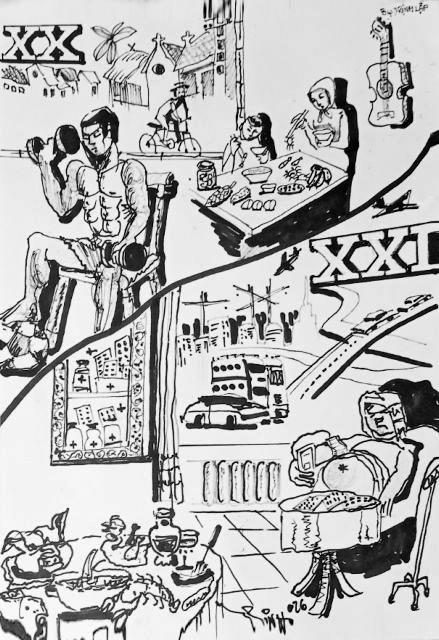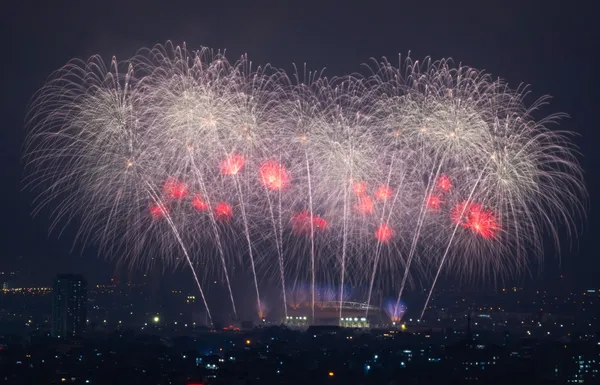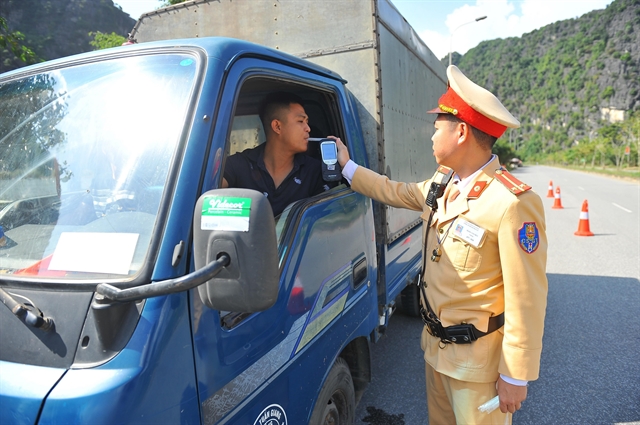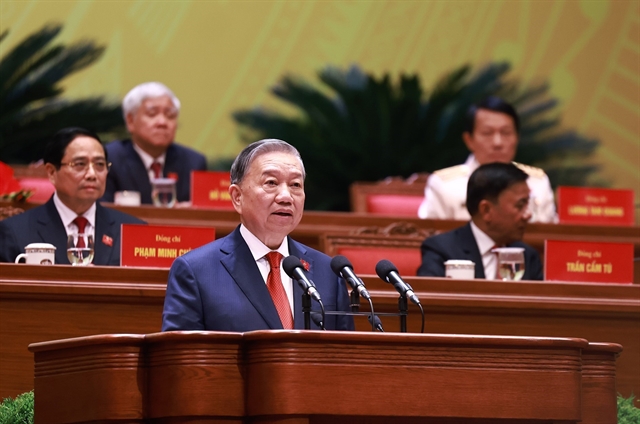 Talk Around Town
Talk Around Town


|
| Ninh Bình police asked drivers to take breath alcohol test. — VNA/VNS Photo Minh Đức |
Chu Lan Hương
On the first days of the New Year, people nationwide have been surprised by the enforcement of new strict fines for drink driving.
A new decree which took effect on January 1 legislated fines from VNĐ6 million to 8 million (US$260 to 350) for drivers with alcohol concentration level below or equal to 50mg in 100ml of blood or 0.25mg in 1 litre of breath.
A driver with alcohol concentration level exceeding 0.4mg in 1 litre of breath or 80mg in 100 ml of blood will be given the highest fine of VNĐ40 million ($1,700), compared to VNĐ18 million ($776) in the old decree.
Violators can also be banned from driving for up to 24 months.
Toughest of all, the decree bans driving after any level of drinking for all types of vehicles, including bicycles.
Like many other new regulations, the new zero tolerance decree has divided opinion.
Many have cheered the fines as being severe enough to deter violators.
“I strongly agree with the high penalties in the new decree,” said Hoàng Thu Hằng, a teacher in Hà Nội’s Đống Đa District.
“Many previous fines were too light so there were many tragic traffic accidents causing by drunken drivers,” she said.
“The decree has positively affected my family.
“My husband stopped drinking with his friends after work because he was afraid of paying fines which might be double his monthly salary,” she said with a laugh.
Hoàng Oanh, an office worker in Hoàn Kiếm District, said the strict regulations should have been brought in long ago.
“I wanted the fines to be much higher and stricter. Drunken drivers’ licence could be revoked permanently if they cause severe accidents,” Oanh said.
Drivers do seem to be afraid of the strict penalties, as online newspapers have reported that many restaurants have lacked customers.
Opposition
On the other side, the higher fines have faced some opposition, with the main gripe being the overnight switch to zero tolerance.
One motorist reportedly left his motorbike at a traffic police checkpoint rather than pay the fine of VNĐ6 million ($260) because his vehicle was worth less than the fine.
Nguyễn Xuân Thuỷ said he had just drank a single can of beer a day before being stopped to be breathalysed.
“In my opinion, people should be informed before any legal regulation is applied into life,” he said.
“It felt like an ambush,” he added.
Others have pointed out unreasonable points in the new rule.
“I agree with the high rates of fines, especially for repeat offenders. But I disagree with the enforcement,” said Nguyễn Văn Tiến.
The zero alcohol tolerance policy was not suitable for reality, Tiến said.
Police did not care whether the alcohol came from beer, wine, fruit or medicine, he added.
Some health experts have said that eating some sweet ripe fruits such as mango, litchees or durian could create an alcohol level in the breath.
In other countries, there is a permissible level of alcohol in the blood.
For example, in Singapore, the legal alcohol limit is 35mg of alcohol in 100ml of breath or 80mg in 100ml of blood.
Meanwhile, South Korea regulates the limit of 30mg per 100ml of blood.
“Not many countries have applied the zero limit like Việt Nam,” Tiến said.
“With the zero limit, I only would dare to drive 2-3 days after drinking,” he said.
Follow-up services
New online services have been introduced to allow people to keep drinking at restaurants and parties.
Many Facebook accounts have posted advertisement of enzymes and candies that supposedly help wipe out alcohol concentration in the breath.
Others have offered sales of breathalysing equipment, while services to take drunk people home have sprung up.
Tuổi Trẻ (Youth) newspaper reported many restaurants in HCM City and Cần Thơ have offered free-of-charge services to take drunk customers and their vehicles home.
I would argue the new drink driving fines are not as extreme as many have complained, as in other countries, drink drivers are jailed
I remember that 13 years ago, when wearing a helmet while on a motorbike became mandatory, it also faced strong opposition.
People argued that it wasn't necessary to wear helmets when driving in inner cities as speeds were so low, or that wearing helmets in the hot weather in Việt Nam would be too uncomfortable, or even cause some diseases for the scalp and hair.
Despite all the naysayers, the reality proved that the regulation helped reduce serious trauma in traffic accidents.
So, the new drink driving rule will hopefully also work, and make out roads safer. – VNS




